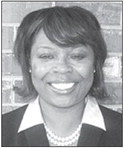On Gender Gap

On Gender Gap
There is a definite gender gap when it comes to men and women in leadership positions in the political world. Why?
It turns out that the problem might be partly to do with sexist assumptions. Most people assume men have stronger leadership qualities, but with women, people tend to be more skeptical. Many people on both sides of the political spectrum currently believe men can bring the world together they have the ability to rule, and women think with their hearts not with their brains. Typically, men are physically more powerful than women and that mindset transfers over into the political arena as well.
Which, of course, then fuels people's ideas about who would or would not be a better candidate for particular political leadership roles. Of course, there is no universal rule — different individuals are differently suited to different positions. For the first time in history, Democratic Candidate Hillary Clinton waged a campaign to be the first female to be elected president — the first female chief executive.
What do Americans have to say in general about the prospects and qualifications of female candidates for such a high political office? For some, Clinton’s gender was a deal-breaker, regardless of politics. Men still dominate the political world for many reasons. Negative stereotyping of women in the political industry has not received enough widespread media coverage. The gender gap in the business world is well-documented, however, the disadvantageous portrayal of female politicians is a topic that has not been discussed in nearly as much detail.
The gender bias means that women as a whole are extremely under-represented in politics, and when they are given attention the emphasis is placed on their skin color, attractiveness, and what or who they are wearing — not on their policies. Women in the public sector that live up to the stereotype of being soft and friendly run the risk of being regarded as “cheerleaders,” rather than the strong leaders that they are. The political field has always been tricky to navigate, but it is more so for women as they struggle to strike a tenuous balance between demonstrating an appropriate level of femininity and having the strength to enforce their own views. If they seem too strong, they face being attacked by the public for being too harsh. Yet if they are seen as too soft, voters will not take their policies seriously.
Another factor to be considered here is the economic factor. The financial strength of individuals getting involved in politics. Politics on any level nowadays requires a lot of capital. Money plays a major role in political participation and most women lack the basic financial resources to adequately get involved in politics. Other factors that developed the gender gap have been of race or ethnicity, age, marital status, parental status, and employment status.
Although there has been amazing progress in the area of women's rights and the move toward true equality, there is much more to do. Negative portrayals of female politicians do not affect them singularly, the effects last a lot longer and have a significant impact on the women that enter the political field today. If we as women want to be taken seriously as lawmakers and politicians, we must collectively work to dismiss the impact that negative media coverage has had on society concerning our attitudes and abilities. Society should accept the fact that women can be great leaders — or perhaps even better leaders than their male counterparts. Women have better access to power now because they work full-time jobs, maintain households, and give birth. The gender gap has played a huge role in recent elections. It is time to bridge this gap and give women politicians a chance. Women have developed and grown since they obtained the right to vote. The more women get involved in politics and vote for progressive-minded candidates, the more the gender gap will be reduced.
Sherry Holliman is a Marion resident and former Marion City Councilwoman. She hopes to use this column to discuss issues affecting Crittenden County residents and champion diverse viewpoints in the community.
Sherry Holliman



Share